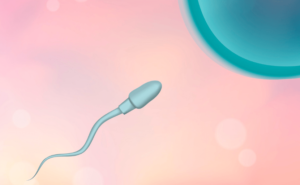- Introduction
- Effects of Alcohol on the Fetus
- Conclusion
- Frequently Asked Questions about Alcohol Consumption During Pregnancy
Introduction
It’s widely known that drinking alcohol during pregnancy is not good. However, many people may not be aware of the specific effects it can have on the baby.
According to data from the Ministry of Health, Labour and Welfare, about 8.3% of women are said to have a habit of drinking alcohol. Women are at risk of conditions such as cirrhosis and alcohol dependence due to alcohol consumption, regardless of pregnancy, so caution is necessary.
While it’s important not to drink excessively in general, some may find it difficult to suddenly reduce their alcohol intake upon becoming pregnant. Of course, the general rule is not to drink alcohol during pregnancy.
However, the rate of alcohol consumption among pregnant women is not 0%. According to data from 2017, 1.2% of pregnant women reported drinking alcohol. Drinking during pregnancy can lead to premature birth, pregnancy-induced hypertension, placental abruption, and can also affect the baby’s development. During the seemingly short but crucial period of pregnancy, prioritize the baby’s well-being and abstain from alcohol.
Now, let’s take a closer look at the specific effects alcohol can have on the baby.
Effects of Alcohol on the Fetus
Drinking alcohol during pregnancy is strictly prohibited. Alcohol is only a burden for the baby.
So, why does alcohol consumption by the mother affect the baby?
When alcohol is consumed during pregnancy, it passes through the placenta to the baby. The alcohol that reaches the baby is metabolized by the baby’s liver, but the liver of a small baby is still immature. Inability to metabolize effectively can not only lead to premature birth or miscarriage but also pose risks to the baby’s health.
Causes of Premature Birth, Miscarriage, and Birth Abnormalities
Alcohol consumption during pregnancy is clearly associated with premature birth and miscarriage. There is a J-shaped correlation between alcohol intake during mid to late pregnancy and the risk of premature birth. In other words, the more alcohol consumed, the higher the risk of premature birth.
If the consumption occurs earlier in the pregnancy, it may result in miscarriage rather than premature birth. Additionally, it’s understood to be a cause of birth abnormalities, so alcohol consumption during pregnancy must be absolutely avoided.

Fetal Alcohol Syndrome (FAS)
Fetal Alcohol Syndrome (FAS) is a condition where babies exhibit various abnormalities in physical and cognitive aspects due to exposure to alcohol in the womb.
Characteristic features of this condition include distinctive facial features, delays in physical growth, and central nervous system problems. Common traits include a flat face, small head, thin upper lip, and indistinct philtrum. Developmental disorders, behavioral issues, and learning disabilities may also be present.
While previously, emphasis was mainly on facial features and low birth weight, recent attention has shifted to the increased risk of learning disabilities. It has been observed that Fetal Alcohol Syndrome raises the risk of conditions such as ADHD (Attention Deficit Hyperactivity Disorder), depression, and addiction.
If mothers abstain from alcohol during pregnancy, the baby will not develop Fetal Alcohol Syndrome. It’s generally considered that daily alcohol intake of less than 15ml (equivalent to about one standard 350ml can of beer) has minimal effects on the fetus. However, this doesn’t mean there are no effects at all. When alcohol intake exceeds 120ml, the incidence of Fetal Alcohol Syndrome rises to 30-50%.
Fetal Alcohol Spectrum Disorders (FASD)
Fetal Alcohol Spectrum Disorders (FASD) encompass a range of abnormalities, including distinctive facial features and brain impairments, resulting from alcohol exposure during pregnancy. This term is used to describe the effects on babies caused by alcohol consumption by pregnant individuals.
Fetal Alcohol Syndrome, as explained earlier, is one type of Fetal Alcohol Spectrum Disorder. The risk increases with higher alcohol intake. Distinctive facial features, low birth weight, and central nervous system disorders are typical symptoms.
It’s estimated that 30% of babies born to women who consumed alcohol during pregnancy, particularly those with alcohol dependence, have Fetal Alcohol Spectrum Disorders.
There’s no safe threshold for alcohol consumption during pregnancy. Therefore, it’s crucial to stop drinking alcohol once pregnancy is confirmed. Whether in early or late pregnancy, alcohol consumption throughout the entire pregnancy period can potentially affect the baby, necessitating caution.
There’s no specific treatment for Fetal Alcohol Spectrum Disorders once they occur. Therefore, prevention through abstaining from alcohol during pregnancy is paramount.
Other Congenital Abnormalities such as Malformations
Alcohol consumption during pregnancy increases the risk of fetal malformation. Acetaldehyde, a byproduct of alcohol metabolism, can affect the baby’s development through the placenta.
Particularly during the early stages of pregnancy when organs are forming, alcohol consumption increases the likelihood of malformations. It’s important to note that when alcohol intake exceeds 90ml per day, the risk of malformation significantly increases, so caution is advised.
However, it’s not safe to assume that drinking alcohol below 90ml is acceptable. There’s always a possibility of some level of impact from alcohol consumption, so it’s essential to be cautious.

Association between Timing of Alcohol Consumption and Abnormalities in the Fetus
Alcohol consumption can potentially have effects regardless of the stage of pregnancy. Particularly during the early stages, which are crucial for organ formation, there’s a higher risk of malformation due to alcohol intake.
During the mid to late stages of pregnancy, there’s an increased risk of fetal growth restriction and central nervous system disorders. While data suggest that alcohol consumption during the early stages may not be directly linked to premature birth, it’s important to avoid alcohol consumption throughout pregnancy due to its various potential impacts.
However, some individuals may unknowingly consume alcohol before realizing they are pregnant because they haven’t started showing. If the amount consumed is small, it may not pose significant issues, but it’s crucial to abstain from alcohol upon realizing pregnancy. Additionally, it’s said that alcohol consumption during the very early stages of pregnancy, from 0 to less than 4 weeks, has minimal impact on the baby.
What is NIPT (Non-Invasive Prenatal Testing)?
Many people may be concerned about whether their baby has any congenital abnormalities. Worries about whether the baby will be born without any abnormalities may lead some to consider NIPT (Non-Invasive Prenatal Testing).
NIPT (Non-Invasive Prenatal Testing) is a test where blood is drawn from the mother to examine if the baby has any chromosomal abnormalities. Unfortunately, it cannot detect disorders caused by alcohol, but it can accurately detect conditions such as Down syndrome, Edwards syndrome, and Patau syndrome.
If you’re concerned about chromosomal abnormalities in your baby, please consult Hiro Clinic NIPT. Hiro Clinic NIPT has conducted over 35,000 tests to date. Testing is also available for twins. With affiliated medical institutions in all 46 prefectures nationwide, testing can be done as soon as pregnancy is confirmed through ultrasound.
Conclusion
Alcohol consumption during pregnancy can have various effects on the baby. During the early stages of pregnancy, it increases the risk of malformation, while during the mid to late stages, it raises the risk of fetal growth restriction and central nervous system disorders.
Since conditions like Fetal Alcohol Syndrome and Fetal Alcohol Spectrum Disorders can lead to distinctive facial features and developmental issues in both physical and mental aspects, it’s important to stop drinking alcohol as soon as pregnancy is confirmed.
If you’re concerned about congenital abnormalities in your baby, one option is to undergo NIPT (Non-Invasive Prenatal Testing). With Hiro Clinic NIPT, testing is available nationwide, so please feel free to reach out for a consultation.
【References】
- Ministry of Health, Labour and Welfare – Dietary Guidelines for Pregnant Women from Pre-pregnancy: Guidelines for Promoting Health from Pre-pregnancy
- Otaka Unit Center – Association Between Maternal Alcohol Intake During Pregnancy and Risk of Premature Birth
- MSD Manual Professional Edition – 19. Pediatrics – Fetal Alcohol Syndrome
- e-Health Net – Fetal Alcohol Spectrum Disorders
- Japan Society of Obstetrics and Gynecology – Alcohol Consumption, Smoking, and Congenital Abnormalities
Q&A
Here are some common questions about alcohol consumption during pregnancy. Please take a look for reference.
-
QDoes drinking alcohol during preconception make it difficult to conceive?Even during preconception, it's believed that moderate alcohol consumption has minimal impact on conception.
However, if the timing of conception coincides with alcohol consumption, concerns about "whether it will affect the baby" may arise, so it's advisable to refrain from drinking alcohol if there's any possibility of pregnancy.
Excessive alcohol consumption is also said to make it difficult to conceive, so it's best to avoid alcohol during preconception. -
QIs it okay to drink alcohol during pregnancy if it's in small amounts?Even in small amounts, alcohol consumption is not recommended.
While the impact on the baby increases with the amount of alcohol consumed, it's important to note that even small amounts can have an effect.
It's advisable to abstain from alcohol once pregnancy is confirmed. -
QDoes alcohol affect breast milk?Drinking alcohol during breastfeeding can indeed affect breast milk.
Since alcohol can be present in breast milk, it can pose a risk by exposing the baby to alcohol consumption.
Avoid alcohol during breastfeeding.
Article Editorial Supervisor

Dr Hiroshi Oka
NIPT specialist clinic, MD
Graduated from Keio University, School of Medicine
 中文
中文






















